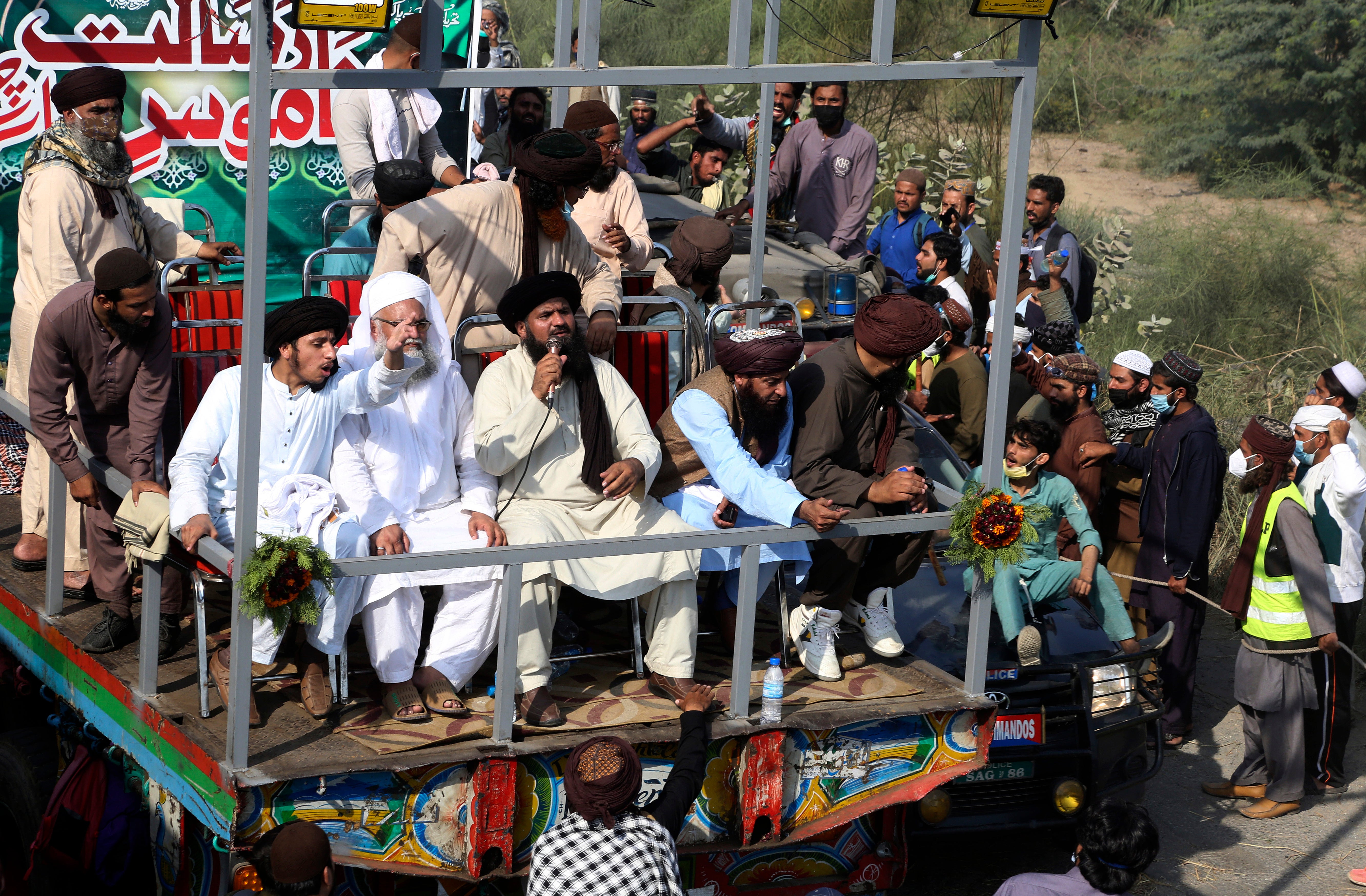Pakistan lifts ban on radical party behind anti-France rally
Pakistan's interior ministry has lifted a ban on a radical Islamist party behind a violent anti-France protest last month

Your support helps us to tell the story
From reproductive rights to climate change to Big Tech, The Independent is on the ground when the story is developing. Whether it's investigating the financials of Elon Musk's pro-Trump PAC or producing our latest documentary, 'The A Word', which shines a light on the American women fighting for reproductive rights, we know how important it is to parse out the facts from the messaging.
At such a critical moment in US history, we need reporters on the ground. Your donation allows us to keep sending journalists to speak to both sides of the story.
The Independent is trusted by Americans across the entire political spectrum. And unlike many other quality news outlets, we choose not to lock Americans out of our reporting and analysis with paywalls. We believe quality journalism should be available to everyone, paid for by those who can afford it.
Your support makes all the difference.Pakistan said Monday it has lifted a ban on a radical Islamist party behind a violent anti-France protest last month that triggered clashes with police, leaving six officers and four demonstrators dead.
The development follows an agreement reached last week between the government of Prime Minister Imran Khan and Tehreek-e-Labiak Pakistan that the party would halt its march to Islamabad The march was called to demand the closure of the French Embassy in the Pakistani capital.
The interior ministry lifted the ban late Sunday.
TLP was outlawed a year ago amid violent rallies over the publications of caricatures of Islam’s prophet in France. The party started demanding the expulsion of French envoy in October 2020, when French President Emmanuel Macron tried to defend caricatures of the Prophet Muhammad as freedom of expression.
Macron’s comments came after a young Muslim beheaded a French school teacher who had shown caricatures of the prophet in class. The images were republished by the satirical magazine Charlie Hebdo to mark the opening of the trial over the deadly 2015 attack against the publication for the original caricatures.
That enraged many Muslims who believe those depictions were blasphemous.
Pakistan's move to lift the ban on TLP drew criticism on social media. The government said the ban was lifted in the “larger national interest” amid assurances the party would not indulge in violent activities in future.
The protest march on Islamabad, which started Oct. 22, was also meant to demand the release of the party's leader, Saad Rizvi, who was arrested a year ago, as well as thousands of Islamists who were detained in a crackdown to foil Islamists’ march from the city of Lahore to Islamabad.
TLP supporters are yet to formally announce the end of their march and scores of demonstrators are still sitting sitting along a highway in the city of Wazirabad. Authorities say they last week freed more than 1,000 detained TLP supporters and that a process was underway to release Rizvi.
Rizvi’s party gained prominence in Pakistan’s 2018 elections, campaigning on the single issue of defending the country’s blasphemy law, which calls for the death penalty for anyone who insults Islam.
Pakistan's military was to brief lawmakers later Monday on the current security situation in the country.